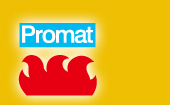http://www.itc.gov.hk/en/quality/hkas/about.htm
Hong Kong Accreditation Service (HKAS) provides accreditation for laboratories, certification bodies and inspection bodies located in Hong Kong, through the Hong Kong Laboratory Accreditation Scheme (HOKLAS) , Hong Kong Certification Body Accreditation Scheme (HKCAS) and Hong Kong Inspection Body Accreditation Scheme (HKIAS) respectively. HOKLAS was launched in 1985; HKCAS was launched in 1998 while HKIAS was launched in 1999.
HKAS is advised by the Accreditation Advisory Board (AAB) on matters relating to accreditation. Chairman and members of AAB are appointed by the Secretary for Commerce and Economic Development under the delegated authority of the Chief Executive. Working Parties and Task Forces are established under AAB to undertake specific tasks.
HKAS Executive is responsible for administering HKAS, including the accreditation schemes undertaken by HKAS. HKAS has also established a cadre of assessors and technical experts for carrying out assessments for each of the accreditation scheme.
HKAS is a member of the International Accreditation Forum (IAF), International Laboratory Accreditation Cooperation (ILAC), Pacific Accreditation Cooperation (PAC) and Asia Pacific Laboratory Accreditation Cooperation (APLAC). HKAS is also a signatory to the multilateral mutual recognition arrangements of these cooperations. All together under these arrangements, HKAS has 85 mutual recognition arrangement partners in 67 economies.
The principal aims and objectives of HKAS are:
to upgrade the standard of operation of certification bodies, inspection bodies and laboratories.
to offer official recognition to competent certification bodies, inspection bodies and testing and calibration laboratories which meet international standards.
to promote the acceptance of data, results, reports and certificates obtained by accredited certification bodies, inspection bodies and laboratories.
to establish mutual recognition agreements with overseas accreditation bodies.
to eliminate the need for repetition of testing, calibration, certification and inspection in the input of economics and thereby reducing costs and facilitating free trade across borders.
Hong Kong Accreditation Service operates in accordance with relevant international standards and its assessment personnel abide by the following Code of Ethics:
- Be impartial, objective, positive, open and helpful.
- Avoid any situation that may give rise to real or perceived conflict of interest or compromise of impartiality.
- Not accept bribery of any form.
- Not discuss with or disclose to any third party any findings or confidential information relating to any assessment activity unless required by law or with written consent of both HKAS Executive and the assessed organisation.
- Not act in any way that may prejudice the reputation and interests of HKAS and the organisation being assessed.
- Only undertake assessments in which one is competent, be prepared to admit one's limitation but ready to exercise judgement within ones area of expertise.Prepare adequately, assess diligently, focus on significant issues and report findings truthfully and fairly.
- Treat all persons tactfully and with respect.
- Consider seriously the views of the assessed organisation.
- Cooperate fully with other members of the assessment team.


